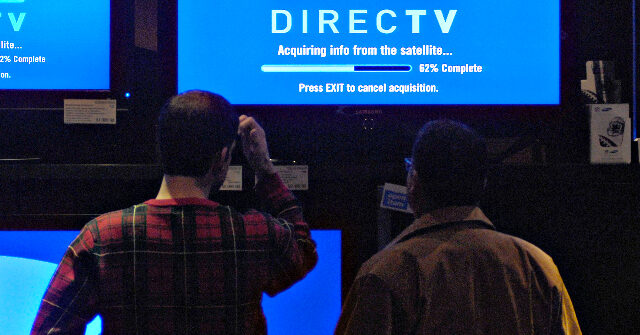DirecTV has announced its long-anticipated acquisition of Dish TV and Sling TV from EchoStar for a nominal payment of $1, combined with the assumption of approximately $9.8 billion in debt. This significant move comes as DirecTV seeks to bolster its competitive stance against the expanding dominance of streaming platforms in the entertainment landscape. Rumors regarding a potential merger between the two companies have circulated for years, with a previous attempt at a merger over two decades ago blocked by the Federal Communications Commission due to antitrust concerns. In the current context, where traditional satellite TV has experienced a dramatic decline in demand, DirecTV hopes to capitalize on this acquisition by offering a more comprehensive and affordable content package to its consumers, positioning itself as a one-stop shop for diverse entertainment options.
DirecTV’s need for a strategic shift is accentuated by its staggering loss of approximately 63% of satellite customers since 2016. With streaming services rapidly gaining traction, the company aims to appeal to former satellite users by providing efficient content aggregation. CEO Bill Morrow highlighted the necessity for greater scale to collaborate more effectively with content producers and to innovate in programming offerings tailored to consumer preferences. This merger could allow DirecTV to streamline operations, enhance value for customers through additional investments, and potentially revitalize its offerings to reclaim lost market share.
For EchoStar, this transaction may serve as a crucial financial lifeline amid challenges such as impending bankruptcy risks and dwindling cash reserves. With reported cash holdings of just $521 million and significant debt repayments looming—approximately $1.98 billion due in November—shedding Dish allows EchoStar to refocus on other ventures, notably its wireless efforts with Boost Mobile. EchoStar’s leadership indicated that this restructuring would lead to a stronger financial position, enabling progress in developing their nationwide 5G Open RAN wireless network and enhancing services for U.S. consumers. However, following the deal announcement, EchoStar’s stock dropped over 14%, signaling possible investor concerns over the company’s future prospects.
The merger between DirecTV and Dish is expected to close in the fourth quarter of 2025, contingent on various factors such as regulatory approval and bondholders agreeing to write off approximately $1.6 billion in associated Dish debt. Analysts have pointed out that the likelihood of regulatory approval exceeds 50%, considering the combined entity’s potential to offer competitive linear video packages and enhance its live streaming offerings. Nonetheless, uncertainties about regulatory attitudes, especially from the Federal Communications Commission and the Department of Justice, remain a prominent concern, echoing the challenges faced by other significant mergers under the Biden administration.
Simultaneously, AT&T is transitioning away from the media sector by selling its remaining stake in DirecTV to private equity firm TPG for $7.6 billion, effectively severing ties with the entertainment industry. This marks a significant shift for AT&T, which acquired DirecTV for $48.5 billion in 2015. After a consistent decline in subscribers, the company opted to divest its stake in stages, having previously sold a 30% share to TPG in 2021 for $16.25 billion. The recent divestiture will facilitate AT&T’s exit from the media space, with the final deal expected to close in the latter half of 2025, leaving TPG and DirecTV to navigate the future of traditional television amidst evolving consumer preferences.
In summary, the merger of DirecTV with Dish and Sling is a strategic maneuver aimed at reinvigorating a pay-TV market that has been significantly impacted by the surge of streaming services. As consumers increasingly gravitate toward on-demand, flexible viewing options, traditional satellite providers like DirecTV must innovate and adapt to remain relevant. By combining resources and offerings, the newly formed entity hopes to not only reclaim lost customers but also redefine the viewer experience in a competitive entertainment landscape. For EchoStar, the sale could provide much-needed relief and refocus its efforts in the wireless domain, indicating a broader trend of traditional media companies pivoting to adapt to changing technological and consumer trends.

